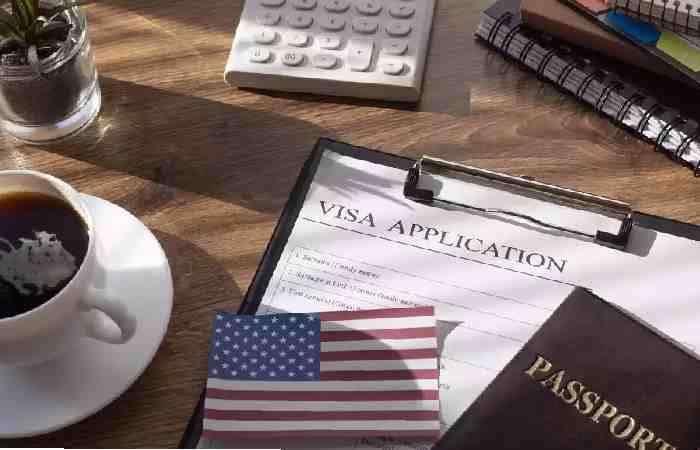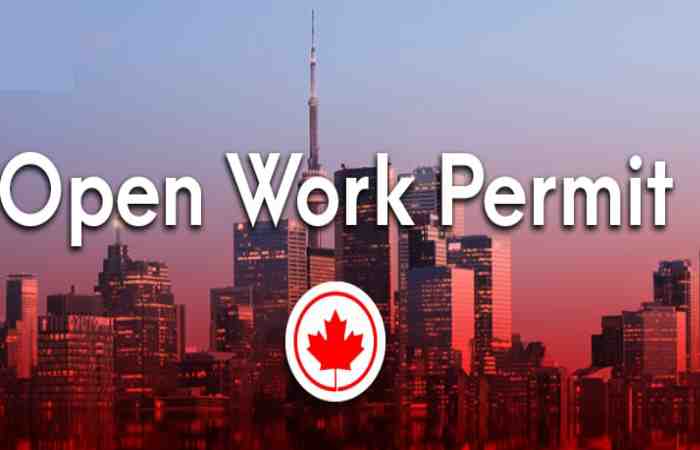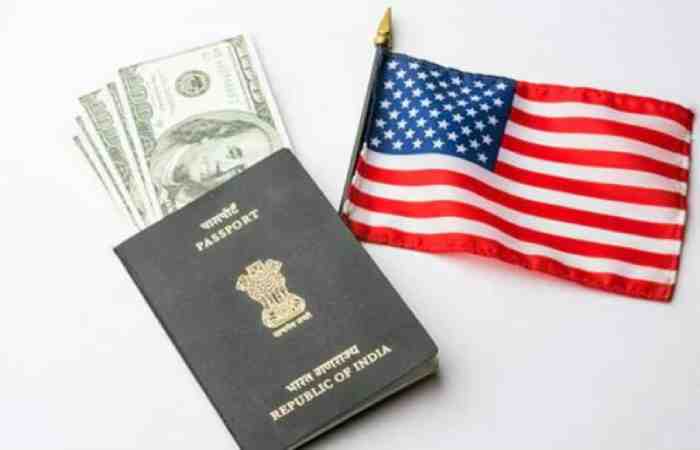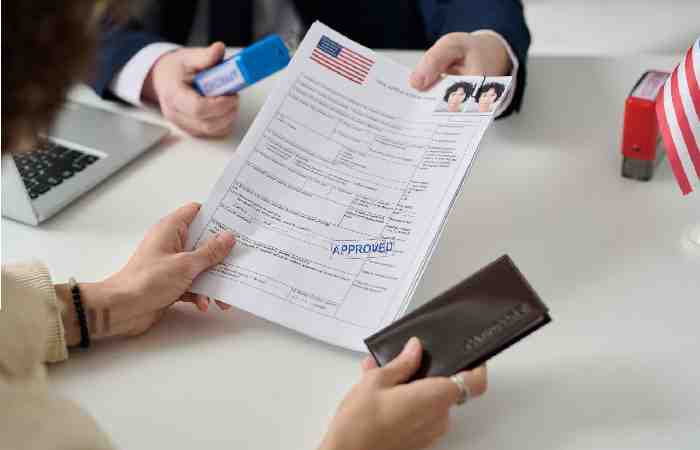America Granted Work Permits For Indian Spouses Of H-1 B Visa Holders
Table of Contents
Introduction – America Granted Work Permits For Indian Spouses Of H-1 B Visa Holders
The recent development of the United States granting work permits to Indian spouses of H-1B visa holders marks a significant milestone in immigration policies. This decision has far-reaching implications for Indian families and the immigrant community.
The H-1B visa program, which allows skilled foreign workers to remain employed in the US. Has historically posed challenges for accompanying spouses who desired employment opportunities. However, granting work permits to Indian spouses brings positive change by allowing them to pursue their careers and contribute to the US workforce.
The H-1B visa program has been instrumental in attracting highly skilled professionals worldwide to fill specialized positions in various industries. Until recently, the accompanying spouses, usually on H-4 dependent visas, faced restrictions that prevented them from obtaining work permits.
This limited their professional growth and financial independence. Leading to concerns about underutilizing the skills and talents of this highly educated demographic. However, with the granting of work permits to Indian spouses, there is newfound optimism and empowerment.
Background of the Work Permit Initiative:
Historical context and previous restrictions:
For many years, spouses of H-1B visa holders in the United States on H-4 dependent visas faced limitations regarding employment opportunities. H-4 visa holders were traditionally not eligible to work in the US, often leading to professional stagnation and financial dependence. This situation affected not only the spouses but also their families. And the utilization of their skills in the US workforce.
Evolution of policies supporting work permits for H-4 visa holders:
Recognizing the potential benefits of allowing H-4 visa holders to work, significant developments have occurred in recent years. In 2015, the Obama Administration introduced a rule that allowed certain H-4 visa holders to apply for employment authorization. This rule primarily benefited spouses of H-1B visa holders obtaining permanent resident status (Green Cards) through employment-based immigration.
However, this rule faced legal challenges and remained subject to revisions and delays. During the Biden administration, it was not until 2021 that further progress remained made to expand work permits for H-4 visa holders.
Considerations For The Inclusion Of Indian Spouses:
The inclusion of Indian spouses in the work permit initiative is significant due to the substantial number of Indian professionals working in the United States on H-1B visas. Indian nationals have consistently been the largest group of H-1B visa beneficiaries. With many Indian families facing challenges related to the employment opportunities of their spouses.
Recognizing the contributions and potential of Indian spouses, the US government acknowledged the importance of addressing these restrictions and providing equal opportunities for career growth and financial independence. This decision demonstrates a commitment to inclusivity and harnessing the talents and skills of immigrant families to benefit the US economy and society.
By extending work permits to Indian spouses of H-1B visa holders, The US government acknowledges the need to create a more supportive environment for immigrant families, enabling them to thrive professionally and contribute to their communities.
This development is a positive step towards aligning immigration policies with the changing dynamics of the modern workforce, where dual-career households are increasingly common, and spouses’ contributions are essential for overall success.
Eligibility and Benefits of Work Permits – America Granted Work Permits For Indian Spouses Of H-1 B Visa Holders
A. Qualifications and Requirements for Obtaining Work Permits:
To be eligible for work permits, Indian spouses of H-1B visa holders, who hold H-4 dependent visas, need to meet certain qualifications and requirements. While specific criteria may vary, the general considerations include:
Valid H-4 Visa Status: The individual must maintain good H-4 visa status as the spouse of an H-1B visa holder.
Spouse’s H-1B Visa Status: The H-1B visa holder, who is the spouse of the H-4 visa holder, must have an approved and valid H-1B visa.
Approval of Form I-765: The H-4 visa holder needs to submit Form I-765, Application for Employment Authorization, and receive support from the United States Citizenship and Immigration Services (USCIS).
Timely Application: The work permit application should be filed within the designated timeframe and comply with any deadlines or guidelines set by USCIS.
B. Employment Opportunities and Economic Empowerment for Indian Spouses:
The availability of work permits for Indian spouses of H-1B visa holders opens employment opportunities and contributes to their economic empowerment. The benefits include:
Professional Development: Work permits enable Indian spouses to pursue careers and professional development in their expertise. They can seek employment in diverse sectors, gain valuable work experience, and enhance their skills.
Financial Independence: Obtaining employment provides Indian spouses with financial independence, allowing them to contribute to their family’s income and financial stability. It reduces dependency solely on the H-1B visa holder’s income and increases household economic resilience.
Expanded Network and Connections: Engaging in the workforce enables Indian spouses to build professional networks and connections, fostering personal growth and developing their social circles.
C. Impact on Professional Growth and Financial Stability of Families:
The availability of work permits positively impacts the professional growth and financial stability of families in the following ways:
Career Advancement: With work permits, Indian spouses can pursue career advancement opportunities, access higher-level positions, and potentially earn higher salaries. This contributes to long-term professional growth and overall career prospects.
Fulfillment of Aspirations: Many Indian spouses have professional aspirations and skills that can now remain utilized through employment. Work permits help them realize their potential and achieve personal fulfillment.
Enhanced Quality of Life: Increased household income through dual incomes enhances families’ overall quality of life. It may lead to improved access to healthcare, education, housing, and other essential services.
Long-Term Financial Planning: The ability of Indian spouses to contribute to the family’s finances aids in long-term financial planning, such as saving for retirement and investments and securing their children’s future.
Implications for Indian Spouses and H-1B Visa Holders -America Granted Work Permits For Indian Spouses Of H-1 B Visa Holders

A. Enhanced Career Prospects and Professional Development:
The availability of work permits for Indian spouses of H-1B visa holders has significant implications for their career prospects and professional development:
- Utilizing Skills and Education: Work permits allow Indian spouses to use their skills, education, and professional experience, promoting career growth and advancement. They can seek employment in their respective fields, contributing their expertise and gaining valuable work experience.
- Networking and Industry Exposure: Engaging in the workforce provides Indian spouses with opportunities to network and establish connections within their industries. This exposure can lead to collaborations, mentorship, and access to career advancement opportunities.
- Skill Enhancement: By working in their chosen professions, Indian spouses can enhance their skills, stay updated with industry trends, And expand their knowledge base. This continuous professional development can lead to increased competitiveness and improved job prospects.
B. Improved Quality of Life and Increased Financial Independence:
The work permits granted to Indian spouses of H-1B visa holders have a positive impact on their quality of life and financial independence:
- Increased Household Income: With the ability to work, Indian spouses contribute to the household income. Leading to improved financial stability and an enhanced standard of living. Dual incomes provide more opportunities for saving, investments and achieving financial goals.
- Access to Benefits and Resources: Employment often grants access to various employee benefits, such as health insurance, retirement plans. And professional development programs. This access to benefits enhances the overall well-being and security of Indian spouses and their families.
- Expanded Lifestyle Choices: Improved financial independence allows Indian spouses to make lifestyle choices, such as pursuing hobbies. Engaging in recreational activities, or accessing services that contribute to their overall well-being.
C. Strengthening Family Ties and Support Networks:
The availability of work permits for Indian spouses of H-1B visa holders strengthens family ties and support networks in several ways:
- Shared Responsibilities: With both spouses working, they can share financial responsibilities, household chores, and childcare duties. Promoting a more balanced and supportive family environment.
- Emotional Support: The ability to work and pursue personal aspirations enhances the self-esteem and confidence of Indian spouses. This positive impact spills over to the family unit’s overall emotional well-being and support.
- Mutual Empowerment: When both partners are employed, they mutually support each other’s career goals, fostering a sense of empowerment, motivation, and encouragement within the relationship.
- Community Engagement: Working in the same community allows Indian spouses to engage with local networks, support groups, and social circles. This involvement strengthens their social support systems and provides friendship and community engagement opportunities.
Future Outlook and Potential Developments 
A. Potential expansions and improvements to the work permit program:
Expansion of Eligibility: There may be discussions about expanding the work permit program to include spouses of other visa categories beyond H-1B visa holders to promote inclusivity and support families across various visa categories.
- Flexibility in Work Authorization: Consideration could remain given to allowing Indian spouses to work in any occupation or industry rather than restricting them to specific fields. This would provide more opportunities for career growth and utilization of skills.
- Streamlined Application Process: Efforts may remain made to simplify and expedite the work permit application process. Reducing administrative burdens and improving efficiency for applicants.
- Extension of Work Permit Duration: The work permits granted to Indian spouses could remain extended. Allowing for longer periods of employment stability and continuity.
B. Political and policy considerations that may affect the initiative:
Shifting Political Landscape: Changes in political leadership and priorities could impact the trajectory of the work permit program. Policy shifts may occur based on different administrations’ political climates and agendas.
- Immigration Reform: Broader immigration reform efforts could influence the future of the work permit program for Indian spouses. Changes in immigration policies and regulations may have implications for work permit provisions.
- Advocacy and Lobbying: Continued advocacy efforts by immigrant communities. Organizations, and businesses could shape the future of the work permit program. Ongoing lobbying and public support for inclusive immigration policies may lead to further improvements and expansions.
- Economic Factors: Economic considerations, such as job market conditions and the overall labor landscape. May influence the government’s approach to the work permit program. Economic factors could impact decisions related to eligibility criteria, duration of work permits, and industry-specific regulations. America Granted Work Permits For Indian Spouses Of H-1 B Visa Holders
H1b Visa Holder Getting Married
Yes, an H-1B visa holder can get married in the United States. However, there are some essential things to keep in mind.
- Your spouse must be a U.S. citizen or lawful permanent resident (green card holder). You cannot marry a non-citizen and stay in the United States on your H-1B visa.
- You must file for a marriage-based green card. This process can take several months or even years, so starting the process as soon as possible is crucial.
- You may be able to continue working in the United States while your green card application is pending. However, you must obtain an Employment Authorization Document (EAD) from U.S. Citizenship and Immigration Services (USCIS).
Here are the steps on how to get a green card through marriage if you are an H-1B visa holder:
- File Form I-130, Petition for Alien Relative. This form petitions USCIS for your spouse to be granted permanent residency in the United States.
- File Form I-485, Application to Register Permanent Residence or Adjust Status. This form allows you to apply for a green card while still in the United States.
- Attend an interview with USCIS. During this interview, you will be asked about your marriage and relationship with your spouse.
- Wait for a decision from USCIS. USCIS will typically take several months to decide on your green card application.
If your green card application is approved, you will be granted permanent residency in the United States. You can live, work, and study in the United States without restrictions.
Conclusion – America Granted Work Permits For Indian Spouses Of H-1 B Visa Holders
The US work permit initiative granting work permits to Indian spouses of H-1B visa holders has significant implications for individuals, families, and society. It represents a positive step towards promoting inclusive immigration policies and fostering a diverse and thriving workforce.
The initiative provides numerous benefits for individuals and families, including enhanced career prospects, increased financial independence. And improved quality of life. Allowing Indian spouses to pursue employment empowers them to contribute to the household income. Pursue their professional aspirations, and build support networks.

